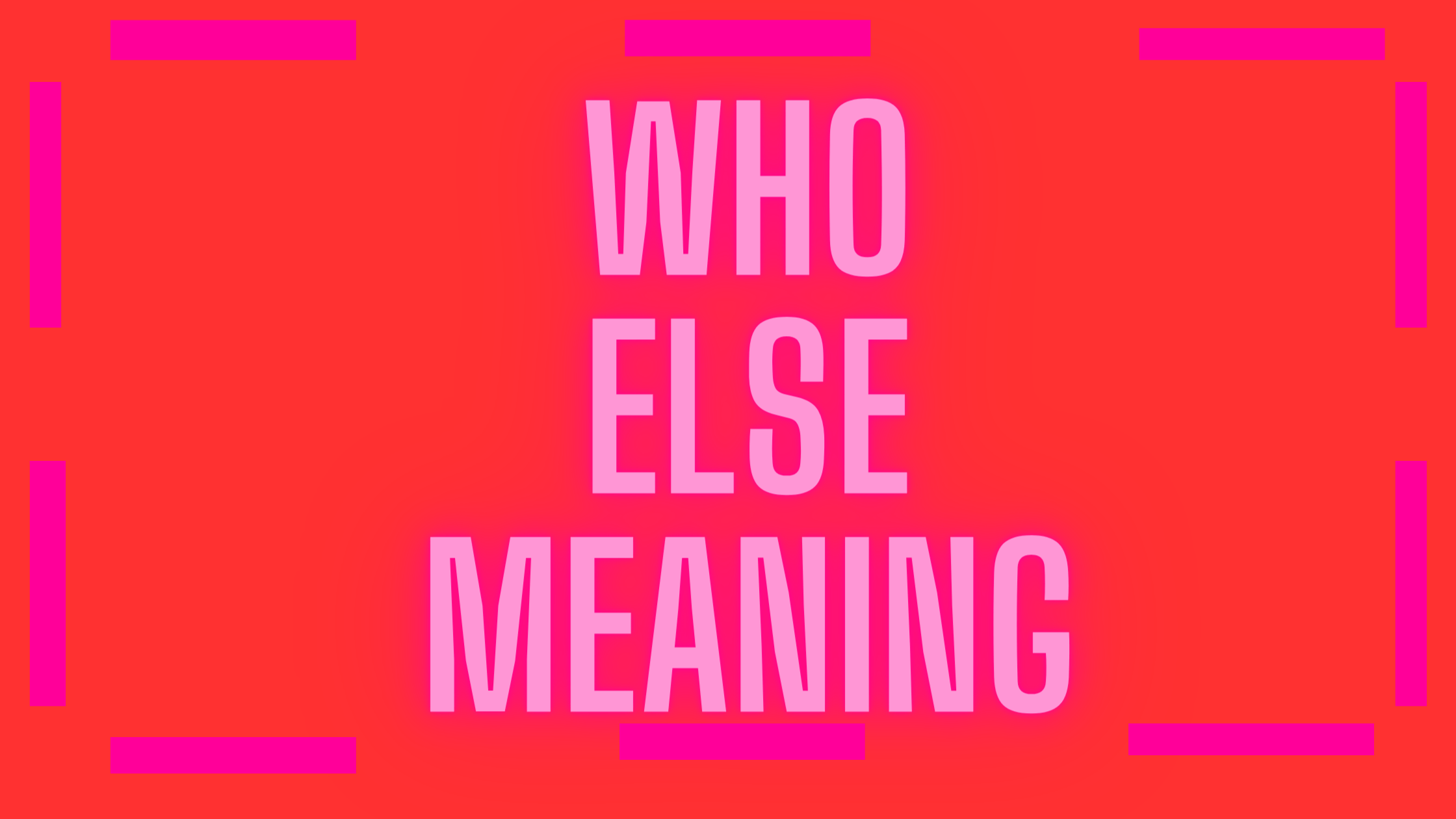A Deep Dive into Meaning and Usage
Ah, the humble phrase “who else.” It pops up in casual conversations, formal inquiries, and everything in between. But have you ever stopped to truly dissect its meaning and how it shapes our communication? This article is your chance to dive deep into the world of “who else,” exploring its nuances, variations, and clever ways to use it in your everyday life.
Check this out also i want a cup of tea and some cookies to ___ it:The Ultimate Guide to Pairing Tea and Cookies
Table of Contents
Beyond the Basics: Beyond “Other People”
The most straightforward interpretation of “who else” is simply “other people.” It’s a way to inquire about additional individuals involved in a situation, like “Who else is coming to the party?” or “Who else voted for the new proposal?” However, “who else” can be much more than just a placeholder for “others.”
Intrigue and Implication:
Sometimes, “who else” is a subtle way to inject intrigue or suspicion. Imagine someone saying, “Who else knew about the hidden room?” This phrasing suggests that someone else might be hiding something, sparking curiosity and encouraging further investigation.
Emphasis and Specificity:
“Who else” can also be used to emphasize a specific aspect of a situation. For example, “Who else could have pulled off such a daring heist?” highlights the skill and audacity required for the act, drawing attention to the unique qualities of the perpetrator.
Humor and Playfulness:
Who says “who else” can’t be fun? A simple “Who else loves pizza?” thrown into a conversation can instantly break the ice and create a sense of camaraderie. This playful use of the phrase can be a great way to connect with others and build rapport.
Variations and Nuances:
“Who else” isn’t a one-trick pony. Here are some variations and nuances that add even more flavor to your communication:
“Anyone else”: This expands the scope of your inquiry to include everyone, highlighting a broader desire for information.
“Who else besides you/me”: This narrows down the focus, excluding yourself or someone else from the potential answer pool.
“Who else but…”: This implies a strong expectation or certainty about the answer, often used for dramatic effect.
Mastering the Art of “Who Else”:
Now that you’ve unraveled the depths of “who else,” here are some tips to use it like a pro:
Match the context: Consider the tone and purpose of your communication when choosing the right variation.
Clarity is key: Ensure your question is unambiguous to avoid confusion.
Vary your vocabulary: Don’t overuse “who else” – explore synonyms like “who additionally,” “which others,” or “any further.”
Embrace the playful side: Don’t be afraid to use “who else” for humor and lighthearted interaction.
Beyond the Words: The Power of Curiosity
Ultimately, “who else” is more than just a phrase; it’s a gateway to deeper understanding and connection. By asking “who else,” we open ourselves to new perspectives, possibilities, and even surprises. So, the next time you find yourself uttering this simple phrase, remember the layers of meaning it holds and the power of curiosity it unleashes.

